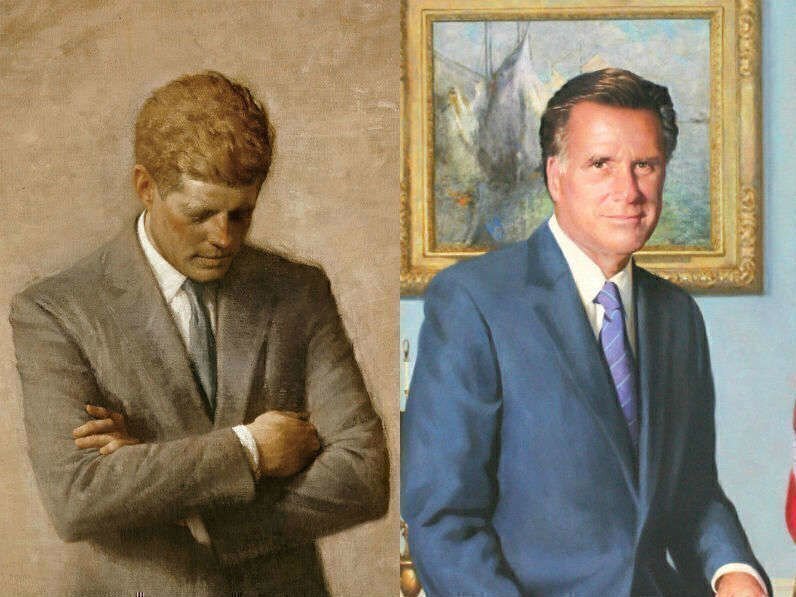 Pope Francis’ visit to the United States has reignited questions about the relationship between public policy and religious doctrine. The Vatican leader supports action to reduce man-made climate change, denounces unfettered capitalism and advocates the welcoming of immigrants—positions that Democratic presidential hopeful Bernie Sanders labeled “very, very progressive"—though he also defends the "human right" of "conscientious objection," a possible gesture of support for Kentucky court clerk Kim Davis.
Pope Francis’ visit to the United States has reignited questions about the relationship between public policy and religious doctrine. The Vatican leader supports action to reduce man-made climate change, denounces unfettered capitalism and advocates the welcoming of immigrants—positions that Democratic presidential hopeful Bernie Sanders labeled “very, very progressive"—though he also defends the "human right" of "conscientious objection," a possible gesture of support for Kentucky court clerk Kim Davis.
The Pope has said that a good Catholic “meddles in politics,” but some Catholic Republicans have pushed back. Rick Santorum recommended that the pontiff focus exclusively on “theology and morality.” Jeb Bush echoed Santorum’s sentiment, saying that he doesn’t get his economic policy from his bishop, cardinal or Pope. The dispute brings to mind a different time.
During the 1960 presidential election, before the days when email scandals and late-night Twitter tirades stole the national spotlight, John F. Kennedy was tasked with overcoming a different kind of controversy: the so-called “religious issue.” If elected, Kennedy would be the first Catholic commander-in-chief, a possibility that deeply concerned the Protestant community.
Indeed, 150 Protestant ministers warned that Kennedy would be controlled by Church teachings unless he explicitly and public denounced Catholic doctrine; 144 pamphlet producers distributed anti-Catholic propaganda nationwide. G. E. Lowman, an influential Protestant radio evangelist, warned that, for Catholics, church doctrine “is given priority over all people and nations,” and that a Catholic president would give “the Roman Catholic church and its teachings the preeminence over the Constitution of the United States.”
Under pressure to respond to these attacks, Kennedy addressed the Greater Houston Ministerial Association with what is among the most famous speeches in U.S. history concerning the relationship between religion and public service.
Kennedy explained that he believed in an America where “no man is denied public office merely because his religion differs” from voters. Kennedy pushed back at indictments of “divided loyalty,” saying that he sees America as a place where “no public official either requests or accepts instructions on public policy from the Pope.”
Kennedy also assumed a firm stance on the separation of church and state, saying that it should be “absolute”—an image reminiscent of the First Amendment’s “wall of separation,” as envisioned by Thomas Jefferson. Furthermore, he denounced “unconstitutional aid to parochial schools” in an apparent jab at a 1947 Supreme Court decision that permitted tax subsidies for parents who sent their children to religious schools.
The would-be President extended his call for toleration to include all faiths, explaining almost prophetically that “today, I may be a victim, but tomorrow, it may be you.” Most strikingly, Kennedy pledged that he would resign the presidency if he were faced with a conflict that required him either to violate his “conscience or the national interest.”
Kennedy delivered a powerful campaign message that may have won him the presidency, but the Supreme Court has largely rejected his vision of the church-state relationship.
In 1971, the Court outlined the “Lemon Test,” which rejected the “absolute” separation that Kennedy advanced. Under Lemon, laws are acceptable under the First Amendment if they have a secular legislative purpose; primary effects that neither inhibit nor advance religion; and foster no “excessive entanglement” between church and state. In 1983, the Court reaffirmed that some state funding schemes of parochial schools are constitutional, and upheld a Minnesota policy that allowed parents certain deductions on state tax returns for the cost of sending children to religious schools.
Past presidential candidates have also rejected Kennedy’s vision. In 2007, GOP presidential candidate Mitt Romney responded to attacks on his Mormon faith while rejecting Kennedy’s “absolute” separation. He denounced judging a candidate on their faith, but condemned what he called “the religion of secularism,” explaining that “in recent years, the notion of the separation of church and state has been taken by some well beyond its original meaning.”
And in 2012, Santorum said that he “almost threw up” reading Kennedy’s articulation of absolute separation. “The idea that the church can have no influence or no involvement in the operation of the state,” he said, “is absolutely antithetical to the objectives and vision of our country.”
Jonathan Stahl is an intern at the National Constitution Center. He is also a senior at the University of Pennsylvania, majoring in politics, philosophy and economics.







